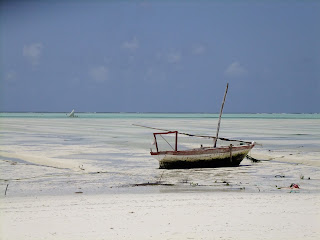 | |||||
| A Little Community Among the Rice Paddies |
Thank goodness I worked so hard all those years at learning the French language! It wasn't easy, as I know it's not for some of you, but imagine the reward! Madagascar would be extremely challenging to travel in if I didn't speak French.
Malagasy is the native language that everyone here speaks. Then they learn French in school and at home because in 1896 France declared it as its own. Madagascar is now its own independent nation, but everyone still speaks French. Nowadays, kids learn English in school, the same way that you learn French, but after graduating they don't have much use for it. Since Madagascar is so far away from English speaking countries, they don't get a lot of English tourists (or tourists from anywhere for that matter).
Here's a look at all the French-speaking countries in the world:
Mr. Elder doesn't know very much French, so I'm in charge of communicating while we're here. It's been fun to practice! I have also loved walking through the villages hearing smiling kids yell, 'Bonjour Madame!' as I pass by.
Here are some words and phrases that have really come in handy:
Bonjour, ça va? - Hello, how are you?
Ça coûte combien? - How much is it?
Est-ce que je peux...? - Can I...?
Est-ce qu'il y a ...? - Is there...?
Qu'est-ce que c'est? - What is it?
Où est...? - Where is...?
La facture, s'il vous plaît. - The bill please.
Je ne comprends pas. - I don't understand.
Merci beaucoup! - Thank you very much!
 |
| Antananarivo in the Background |
Imagine having to figure out everything in another language-how to get where you want to go, how much it will cost, when to get off a bus, where the bank and grocery store are, menus... everything! Every little word you can remember might come in handy. My French is nowhere near perfect, so there is always the fallback of acting things out using sign language!
 |
| Antananarivo, Madagascar's Capital City |
In class, we talked about different words that are used in Quebec and France. It's the same as how people in England use different English words than we do, like 'boot' for the trunks of their cars. I've learned some of these differences because I learned Parisienne French (French from France/Paris) in school, and I learned Quebecois French while working for two summers in Quebec. Because I spent so much time in Quebec, for me, the Quebecois words usually come to mind first. But in Madagascar, they speak Parisienne French because it was settled by France. So I've had to check myself sometimes and try to remember the word less familiar to me. Here are a couple of examples that I know we discussed in class:
Quebec France English
une collation un gouter a snack
(we saw this in the book "En Attendant Noel")
la pause la recreation recess
(we learend this during our food unit)
le petit-dejuner, le dejeuner, le diner / le dejeuner, le diner, la souper /breakfast, lunch, dinner






